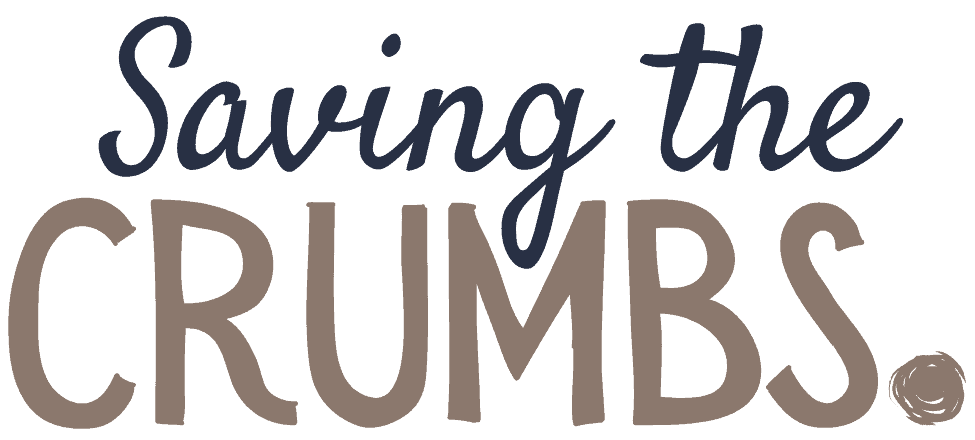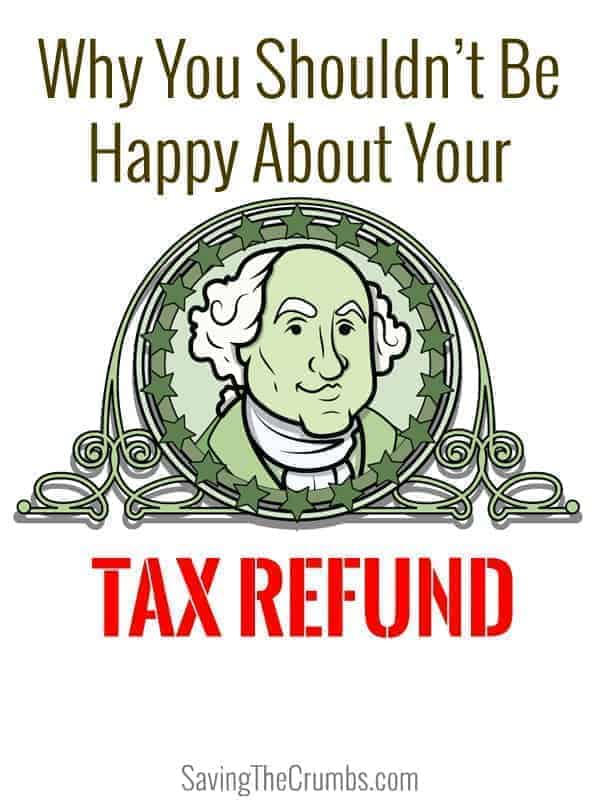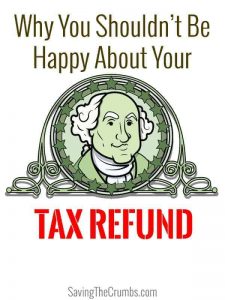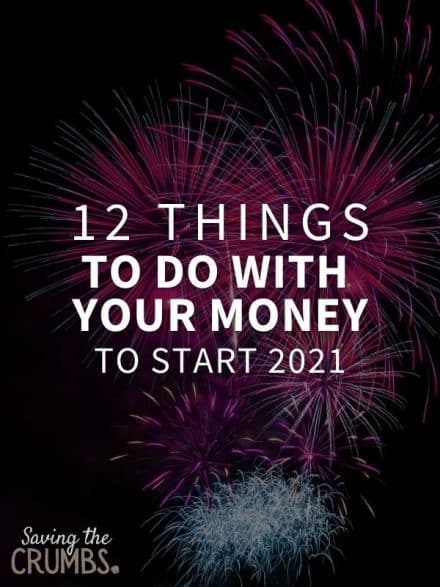Even as a former math teacher with an unhealthy unusual fascination with personal finance, I must confess that filing taxes do not thrill me. I do it because I take the advice of Jesus seriously when He says we ought to render unto Caesar the things that are Caesar’s (i.e. the government), but at the same time not believing in paying any more than I must. It’s a chore and it’s a bore, and I do it simply because I have to.
But What About The Tax Refund?
You might find this lack of interest in tax time somewhat strange for a Crumb Saver since there’s a fat tax refund check at the end of the slog, right? Isn’t that a good thing?
Maybe you’ve heard some of these sentiments like we have:
- I can’t wait to get my tax refund so I have money to buy this or that.
- I always have the maximum withheld from my paycheck so I can get more money in my tax refund.
- I file an extension for my tax return so that I can get my return later in the year in order to have extra money for Christmas shopping.
- I love tax return time! It’s like having Christmas in April!
For many working folk, the tax refund check is probably the biggest check they get all year. So it’s natural to view such a big, fat chunk of change as a windfall from the government. If you’re reading, nodding your head, and already imagining the warm fuzzies you’ll be feeling when you get your tax refund, I’ve got some bad news for you.
You shouldn’t be happy about getting a big tax refund.
Wait, what?!
It’s Called a Refund for a Reason
Sorry to break it to you, but a tax refund (as opposed to a tax credit, which we’ll talk about later) is not “free money” and it certainly isn’t a magnanimous offering showered upon the working masses by a gracious and benevolent government.
A tax refund is exactly that: A REFUND. It is money returned to the taxpayer that was overpaid during the year above their tax liability. It is YOUR money that you are simply getting back from the government.
Look at it another way. It is money that you’ve loaned the government that they’ll give back only if you successfully collect forms from the myriad of places you do business with (employers, banks, brokerages, contractors, etc.), use that information to navigate through the labyrinthine paperwork of the 1040s (or pay someone to do for you), and successfully finish it all before April 15. (You know I’m oversimplifying the process already.) And if you make a mistake and claim less than you are rightfully due, they will happily keep the rest without telling you. Oh, and to add insult to injury, they won’t pay you any interest for the use of your money through the year either and there’s always the threat of an audit if something doesn’t look quite right!
So please don’t buy the marketing hype over all the great stuff you can now purchase because of all this “extra” money you’ve gotten from your tax refund. You should shed a crumb-saver tear over all the lost earning potential of that cash that has been sitting interest-free in Uncle Sam’s coffers for the past year!
Tax Refund = Opportunities Lost
Suppose you get the 2015 average tax refund of $2800, that is $233.33/month that you were loaning interest-free to the government. Just think, that’s $233.33 that you could be saving, investing, or using to pay off debt. Let’s take a quick look at how much you could have earned doing these things instead of paying extra in taxes:
|
Interest Earned |
Total after 1 Year |
|
| Tax Withheld |
$0 |
$2800.00 |
| 1% Savings |
$15.22 |
$2815.22 |
| 6% Investments |
$92.22 |
$2892.22 |
| 8% Investments |
$123.51 |
$2923.51 |
| 25% Credit Card Debt |
$400.81 |
$3200.81 |
I know that it FEELS better to get one single honking $2800 check instead of a trickle of $233 each month, but our feelings can’t negate the math.
The Best Amount to Get in Our Tax Refund
So lest I be misunderstood, I am not saying that it is good to OWE taxes when you file your return. Even though Uncle Sam won’t pay you interest for money he owes you, he will charge YOU interest if you owe HIM money! So certainly, no one will argue the fact that it’s better to get a tax refund than to get a tax penalty.
The point is that a BIG tax refund is nothing to celebrate. In fact, the bigger the refund, the more opportunity we’ve lost! So in my humble opinion, for most people the best amount to get back in a tax refund is $0. This means we paid just the right amount throughout the year to not owe anything, and also have kept control over as much of our own money throughout the year as possible.
Note what I’m NOT saying though. I am NOT advocating that you pay more taxes! I don’t mean to stop taking the full amount of deductions in your tax return so to raise your tax liability just to have a smaller refund. (Mercy!) What I am saying is that it is better to reduce the amount withheld and/or paid in during the year so that after all the deductions you rightfully claim, you end up with a smaller refund.
Obviously, it’s very difficult to predict our income, deductions, and other variables ahead of time to know precisely how much to withhold on our W-4 form or how much to pay in our quarterly estimated taxes (for contractors and businesses), but there are some withholding calculators available online to play with to point us in the right direction. My point is that taking the maximum withholdings in order to get a bigger tax refund is wrongheaded.
An Exception (Sort of)
Now I will mention at this point that there are certain exceptional situations where getting a big tax refund might be a nice thing. I had personal experience with one such exception the first year that I had a job. I summarize in this table below:
|
Total Income |
Taxes Paid | Tax Credit (Refund) |
Effective Tax Rate |
|
$4,903.00 |
$0 | $674.00 |
-13.2% |
So as you can see, I paid NOTHING in taxes that year but still got money back, resulting in a NEGATIVE effective tax rate. In this situation, indeed, I did receive free money from the government.
But how can this be? There may have been other factors involved too, but one big reason was because I earned so little money back then that I qualified for the Earned Income Credit (EIC). That’s a tax credit given to people who earn a low income.
So while this is one circumstance in which it’s better to get a bigger tax refund than smaller, it’s still not necessarily something to celebrate. Because after all, the reason why I got it was because I was poor! Not exactly a state that anyone should aspire to!
For people of all income brackets, it’s nice to qualify for tax credits (I got to claim the Child Tax Credit for the first time in 2015! Thanks Baby Crumb Saver!), but only the low-income earners can get paid the credit even while paying no taxes. For most people earning living wages, the tax credits will only bring the tax liability down to $0, and so for those folks they won’t be pocketing any extra money at the end of the day.
What Will You Do With Your Refund?
It is not my intention in this post to make anyone feel guilty about getting a tax refund. We actually got a big refund check ourselves last year (due to the tax credit from our solar panel installation) and will be getting one this year (due to the arrival of Baby Crumb Saver). And I certainly hope that you readers out there are expecting a tax refund this year rather than a tax bill!
What is more urgent, I believe, is the message to be prudent with what we DO with the refund once we get it. Remember, this is not free money, but rather money that has been missing in action for a long while. So instead of spending it on stuff that won’t help us get ahead, why not put that money to work to help us gain financial freedom? How about that debt that needs to be paid off? Or saving for some future need? How about retirement? Education? Paying off your home early? Let’s put those crumbs to work!
So it’s your turn, Readers. What do YOU plan on doing with your tax refund this year?
Disclaimer: I’m no tax professional and taxes change so much all of the time that I’m certainly not offering tax advice here. Please check with your accountant for tax advice for your specific situation.







